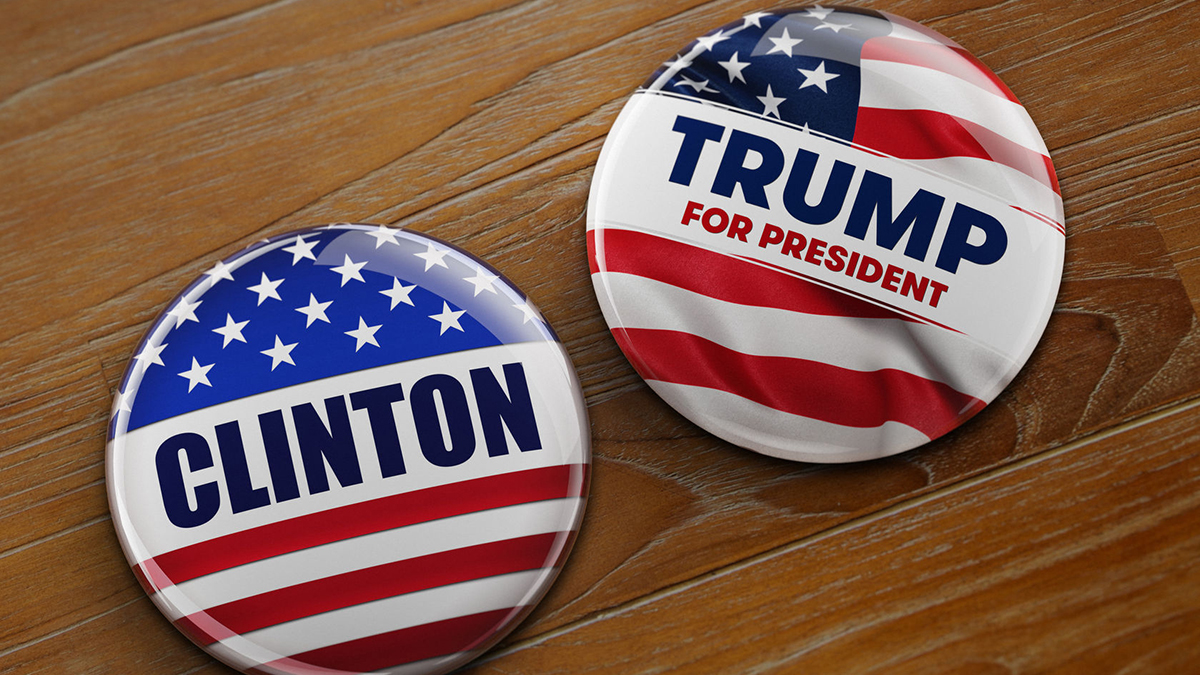Although Hillary seemed more likeable than usual in the first presidential debate and Trump was his old angry and agitated self, they both still have record-breaking unfavorable ratings as candidates. Yet that is because overwhelmingly, people just don’t like their normal personalities. And sadly, most voters never get beyond a superficial grasp of their policy differences. They just know that Hillary has many years of public experience and represents the status quo and have a vague notion that Trump, who has none, wants to shake up the system. Yet a closer examination of their policy stances in foreign affairs should likely lead voters to the same place—both candidates stink.
When bipartisan agreement exists on foreign policy, the voters should not rejoice but instead be wary. On the foreign policy issue of our time, despite Trump’s repeated denials, he initially supported the unnecessary and costly—in lives and money—Iraq War; so did Hillary, who later repudiated that stance.
On the Trans-Pacific Partnership (TPP) trade agreement both candidates are now against it, after Trump appropriately pointed out that Hillary originally called it the gold standard of trade agreements. Arguments always exist over how many American jobs are lost or gained by such trade agreements, which also include the North American Free Trade Agreement (NAFTA) that President Bill Clinton got ratified and Trump continues to malign. Trump insisted that, “Our jobs are fleeing the country. They’re going to Mexico. They’re going to many other countries...They’re leaving, and they’re leaving in bigger numbers than ever.” Statistics show, however, that although the economic recovery from the Great Recession has been slow, the U.S. economy has added 14.9 million jobs since the depth of the recession in 2010.
The vast majority of economists tell us that free trade is good, because it allows countries to concentrate on efficiently producing and exporting their specialty products and services while importing cheaper specialties of other nations. With trade agreements, Americans benefit from both because prices of everyday items go down, thus making everyone wealthier. (Trump’s and Hillary’s current positions that the TPP is bad are reminiscent of the unfortunate bipartisan consensus that energy independence (really protectionism) is desirable—but only if the consumer wants to pay a lot more for energy when often cheaper imports of foreign energy are reduced or eliminated.)
Trump claimed that the trade deficit is $800 billion a year, but it was only $500 billion in 2015 and that was down from its high water mark of $762 billion in 2006. Yes, $500 billion is still a large number, but the trade deficit is an overrated measure of U.S. economic decline. In fact, when the domestic economy is humming, the trade gap often yawns, as American consumers take greater advantage of the cheaper imports.
Although Hillary raised credible questions about voters letting the mercurial Trump have control of the nuclear trigger, she has some problems in this realm herself. Unlike Trump, she did not disavow the first use of nuclear weapons. During the Cold War, the United States never gave up the option of “first-use” in its nuclear doctrine, because it planned to use nuclear weapons to defend against an attack by what were then thought to be superior Soviet and Warsaw Pact ground forces near the border with Western Europe. The Cold War has been over for some time and that massive Soviet tank army no longer threatens the vast economic resources of Western Europe. Furthermore, even without a needless first-use posture, the United States always has been able to ride out a nuclear first strike and still retaliate with its potent surviving nuclear weapons, thus deterring any nuclear attack by adversaries in the first place. By not following Trump and adopting a “no-first-use” nuclear pledge, Hillary is unnecessarily elevating the chances of nuclear war.
Both Trump and Hillary have overstated the threat from Vladimir Putin and Russia. Although Trump previously had said some kind things about Putin, in the debate, he implied that the U.S. military was losing out to Russia by saying, “Russia’s been expanding. They have much newer capabilities than we do.” Despite being weakened by a plummeting price for oil, its major export, and Western economic sanctions, since 2010, Russia has been enlarging its military and adding new weapons. However, the United States spends almost 10 times annually what Russia does on defense—and that advantage has been cumulative since the end of the Cold War. Furthermore, both candidates need to have a sharper realization that in the face of a rising China, U.S. disputes with Russia over Syria and Ukraine should be resolved so that the two great powers can cooperate as greater Chinese power looms on the horizon.
The last point illustrates that neither candidate has developed a coherent grand vision for what a sustainable future U.S. role in the world should be, given the country’s imperial overstretch (U.S. defense spending accounts for about 38 percent of the world’s total, but its GDP is only 16 percent of the global tally) and the powerful constraint of a $19 trillion national public debt at home. The voters deserve better.

















